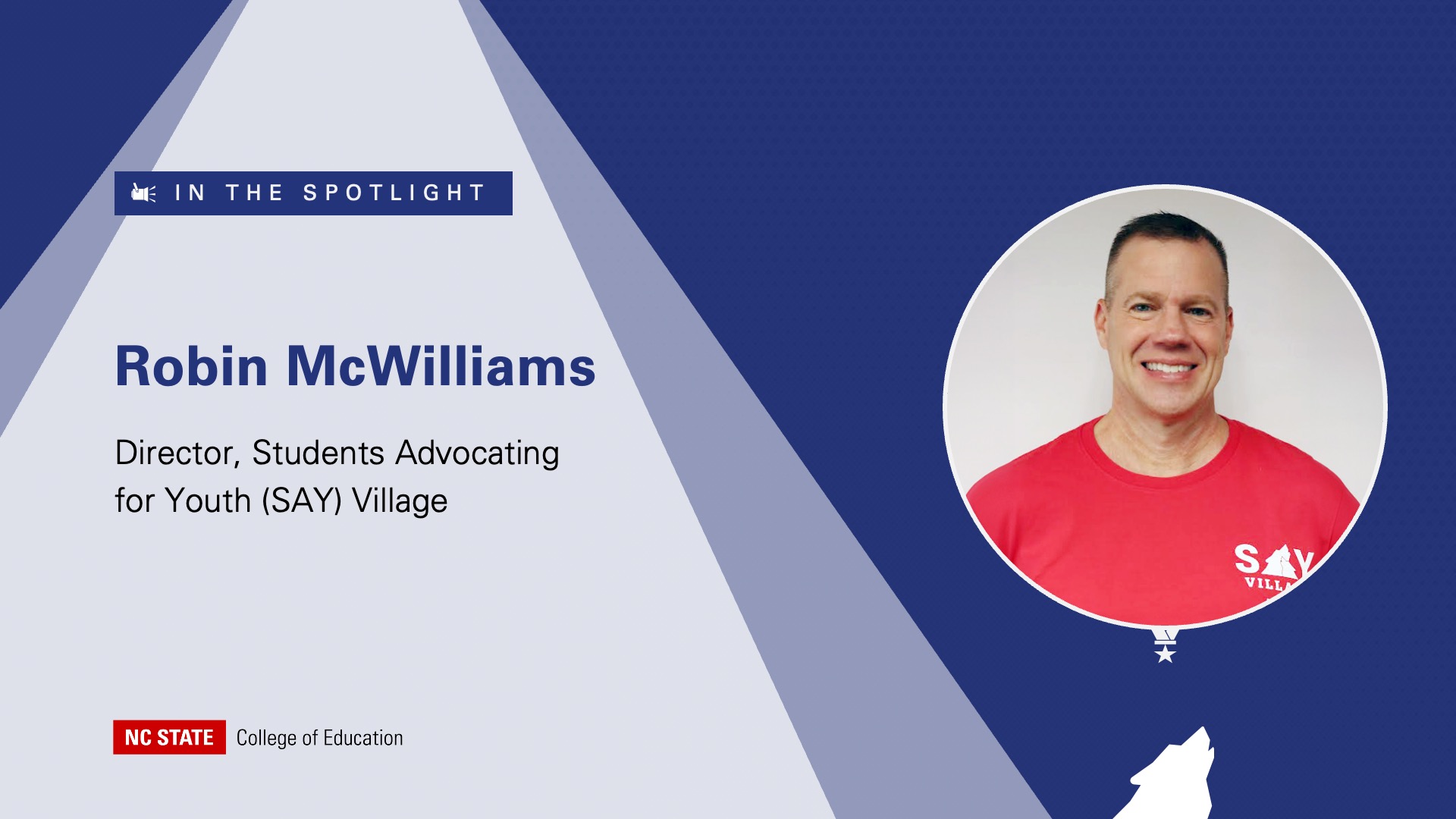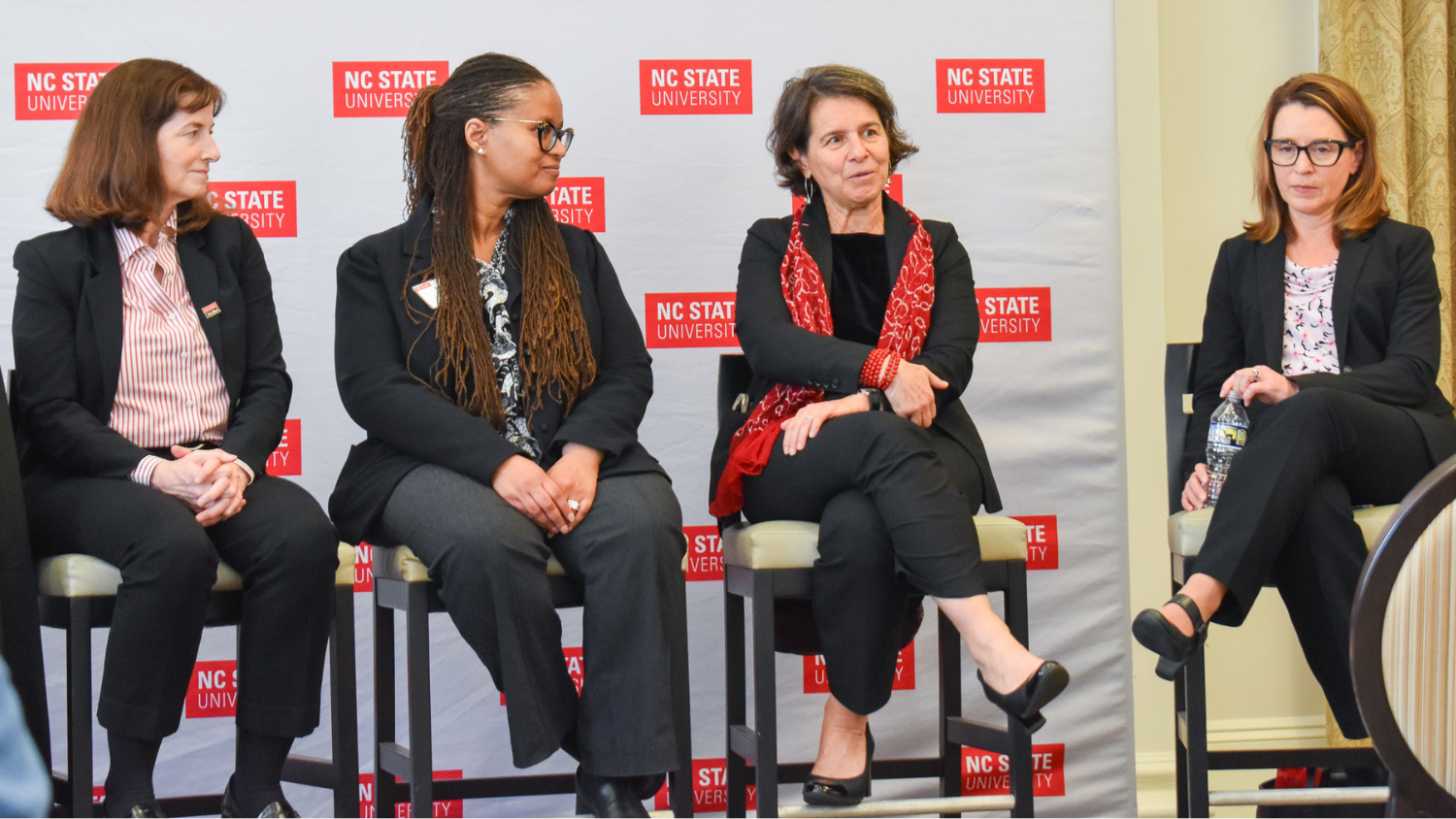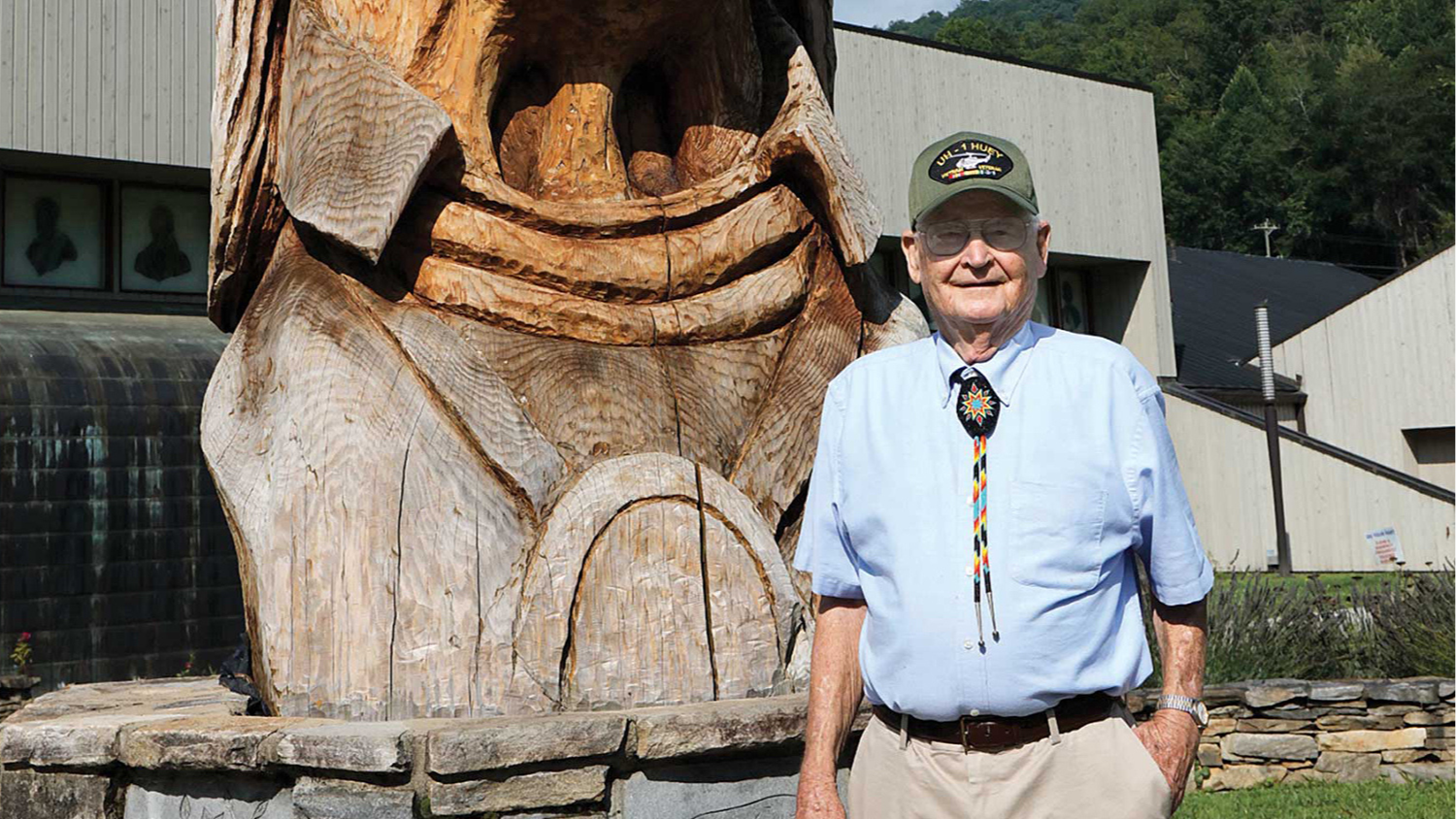Gary W. Wright III ’22PHD: ‘Scientific Knowledge is a Powerful Tool, and It Can Be Used to Uplift and Liberate People’

When Gary Wright ’18MED, ’22PHD approached his advisor with his decision to explore gender and sexual diversity for his dissertation, he was worried how it would perceived. Instead, he received overwhelming support and encouragement, which eventually led him to be honored with the first place prize in the education category of NC State’s 15th Annual Graduate Student Research Symposium. Now, he hopes his research will improve science education instruction and help ensure all students have a space to learn in ways he wished were available to him growing up.
Learn more about Gary Wright
Hometown: Youngsville, North Carolina
Degree: Ph.D. in Learning and Teaching in STEM: Science Education concentration
Activities (Research or Extracurricular): NARST Outstanding Dissertation Research Award semi-finalist (November 2022); NC State Graduate Student Research Symposium – First Place College of Education (April 2022); Jhumki Basu Scholars Fellowship (January 2022); John and Nell Penick Fellowship in Science Education (April 2021)
Why did you choose the NC State College of Education?
As a non-NC State undergraduate, I had several positive interactions with students and faculty members from the College of Education through the North Carolina Teaching Fellows program (the original version). It was clear through my interactions with folks that NC State’s College of Education was highly regarded and that the faculty had a passion for research, teaching and learning. Once I decided to pursue my M.Ed. in science education and eventually my Ph.D., I knew that the NC State College of Education was where I wanted to be.
Why did you choose your concentration?
Scientific knowledge is a powerful tool, and it can be used to uplift and liberate people. However, it is often used to marginalize and oppress others. It is a moral imperative that science educators are prepared to disrupt the harmful science narratives and practices that encourage prejudice and bias. In a world of anti-vaxxers, climate change deniers, and racial and LGBTQ injustice, science education has an important role in shaping the next generation of scientists to solve these global concerns.
What’s your next step? What do you have planned after graduation?
I am currently in the job market for tenure-track faculty positions in science education. While I will not likely have a confirmed job offer by graduation, I do hope to be a new assistant professor at a research-focused university.
How has the College of Education prepared you for that next step?
Since being in the science education Ph.D. program, I have continued to develop the professional skills necessary to be successful in academia through my involvement in various research projects, conference presentations, and through my teaching experience working with pre-service math and science teachers. Personally, I have also been able to explore and embrace my own identity and positionality within my research and teaching as a queer person.
What do you hope to accomplish in your field?
Well of course, tenure. But, in addition to that, I hope to make a lasting impact on how science education views and values gender and sexual diversity, and equity more broadly. Science is not a stagnant body of knowledge, and the most exciting part of science is that knowledge is constantly evolving. I hope to prepare science teachers who embrace that uncertainty in scientific knowledge and subsequently share that excitement with students.
Do you have a favorite memory from your time in the College of Education?
One of my favorite memories from my time in the College of Education was being nominated to present my dissertation research at NC State’s Graduate Student Research Symposium and being selected as a first-place winner for the College of Education. This experience validated the importance and necessity of centering LGBTQ identities within STEM education. Having the opportunity to share this work with brilliant scholars from a variety of disciplines and being recognized for the work will also hopefully set the stage for more exciting and powerful equity-based research here at NC State.
Tell us about an experience you had with the College of Education that had the biggest impact on you or your career.
I remember approaching my advisor for the first time to talk about my decision to explore gender and sexual diversity for my dissertation. There was a feeling of fear and discomfort about how it would be perceived. I had never thought I would be able to explore and integrate this aspect of my identity in my work, especially growing up and attending school in rural North Carolina as a queer person. I have had overwhelming support and encouragement from peers and faculty since deciding to take this direction in my research.
I have had so many wonderful opportunities and experiences during my time in the College of Education. I’ve been able to advocate for graduate students through my involvement in the Graduate Student Advisory Board, build close and personal relationships with like-minded educators and get involved with a variety of equity-based research projects under the guidance of supportive faculty members. All these experiences have pushed me to think more critically and in new ways. Overall, I’ve found that the most valuable experiences have all centered around building community.
What are your research interests? What inspired those interests?
My research has been directly influenced by my own exploration of my identity and positionality as an open queer person. I believe and have experienced first-hand that the classroom is not a culturally neutral space, and there are certain ways of communicating, behaving and knowing that are valued over others. This is especially true for LGBTQ students in K-12 schools. This work is personal for me because it is my hope that my research will improve instruction and ensure that all students have a space to learn in ways I wish were present for me within the schools I attended.
Why did you choose education?
I did not always love learning. I struggled academically in elementary school and was often on the verge of failing. It was not until my grandmother taught me to read one summer that I began to flourish a bit more in my academics. Learning how to read from my grandmother was one of my first memories of connecting with a teacher and feeling empowered to learn. I knew from an early age I wanted to be a teacher and share that experience with others. My motivation to pursue education is also based on my own experiences as a queer person who grew up, went to school and taught in rural, conservative North Carolina. I experienced firsthand the harm that schools do to LGBTQ youth and have always been motivated to create safe, welcoming and inclusive learning spaces for all learners in ways I wish were present for me.
- Categories:


